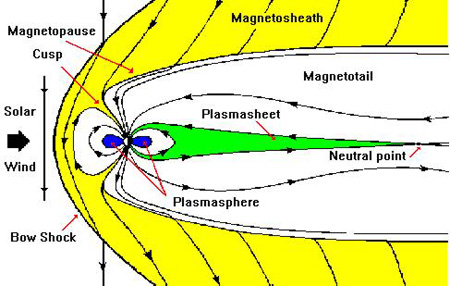The South-East Asian Tsunami of
December 26, 2004 has painfully reminded us that we
live on a dynamic planet.The Earth is a very beautiful place to live with
an atmosphere that is capable of sustaining life and
a
temperature range that allows for the 3 states of
water (solid, liquid, and gas). But these life
sustaining substances come at a price.
It is important to understand that while
tragedies like the tsunami are devastating, they are
a necessary part of the continual evolution and life
sustaining benefits of the planet Earth. Storms
allow for the cycle of water, land provides plant
life to expel oxygen, the oceans swallow up carbon
dioxide and plate tectonics (the movement of the
land masses that cause earthquake, volcanoes, and
tsunamis) keep the surface renewed and free of long
term cratering as a result of
meteorite impact.
As tragic as these events are, they are necessary
for the maintenance of life. Click
here to view the NOAA high resolution computer
simulated QuickTime movie of the Indonesian tsunami
of December 26, 2004.
Not all tragedies are natural, some are man-made.
I am talking about the damage to our environment as
well as the
atmosphere and Ozone layer. I won't preach about
that here, but here are a few places you can visit:
The Earth - A Quick Summary: (More information can be found on the Earth Fact Sheet)
 |
Average Distance from Sun: |
1.496x108 km |
| Eccentricity of Orbit: |
0.017 |
| Average Orbital Speed: |
29.79 km/s |
| Orbital Period: |
365.256 days |
| Rotational Period: |
23.9345 hours |
| Inclination of Equator to
Orbit |
23.45° |
| Diameter: |
12,756 km |
| Mass: |
5.974x1024 kg |
 |
Average Density: |
5515 kg/m3 |
| Escape Speed: |
11.2 km/s |
| Albedo: |
0.39 |
| Maximum Surface
Temperature: |
60°
C |
 |
| Minimum Surface
Temperature: |
-90°
C |
| Average Surface
Temperature: |
14°
C |
| Atmospheric
Composition |
78.08% Nitrogen |
| 20.95% Oxygen |
| 0.035% Carbon Dioxide |
| 1% Water Vapor |
A magnetic field surrounds the Earth which helps
to protect us from solar storms. The presence of the
magnetic field is a bit of a mystery as the Curie
temperature of Iron is 770 degrees Celsius. What
this means is that when Iron reaches this
temperature, it looses all magnetic properties.
|

(Click Image for Video) |
Despite this fact, a magnetic field does
exist. It is believed the current is
generated by a dynamo effect - that is the
liquid molten outer core rotating around the
solid inner core. There is evidence by the
permanent magnetization of rocks that the
earth's magnetic field has reversed 171
times in the past 71 million years (video
care of
Swinburne Astronomy Online). |
| Unfortunately I have seen several
websites that claim a magnetic field
reversal will cause catastrophic changes to
life on Earth. If this were true, then there
would have been 171 extinction events on
Earth - we would not have evolved! We are
quite safe from any event such as this. One
physically observable feature of the
magnetic field are the
Aurora - solar particles are funneled by
gaps in the magnetic field and interact
with Earth's
ionosphere resulting in an impressive
light show. |
 |

The magnetic field does protect us from solar
wind, creating a magnetopause - a sort of shock
wave. In the image above, notice the cusp. This is
where some of the solar particles reach our upper
atmosphere. This is the location of the aurora.
Back to Top |

